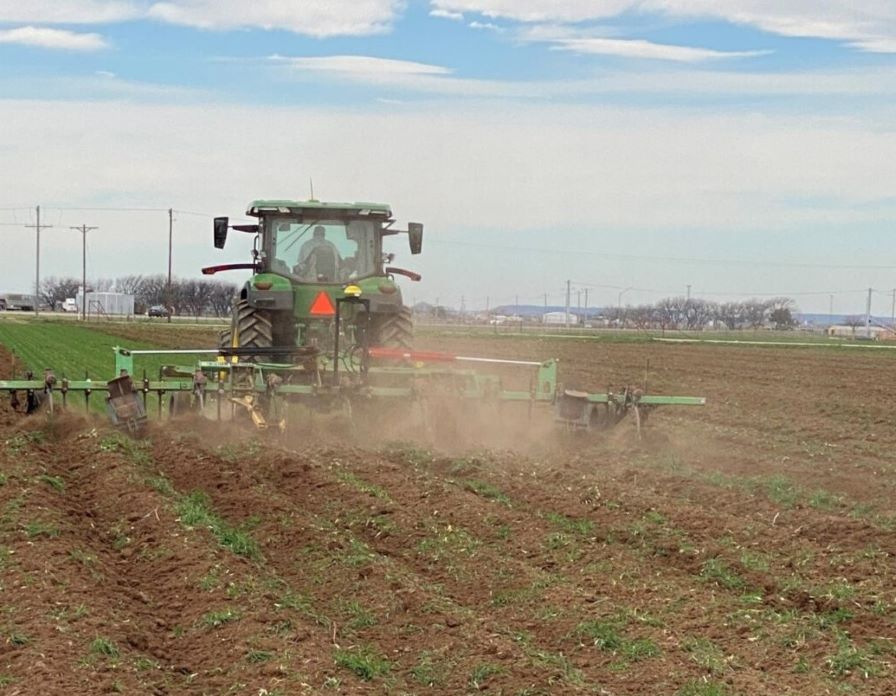NCC Chair Jay Hardwick: Cotton Has Excellent Prospects
National Cotton Council Chairman Jay Hardwick believes that although the U.S. cotton industry still faces many challenges but has excellent prospects for achieving profitable cotton production and processing.
In the opening address at the 2010 Beltwide Cotton Production Conference here today, the Louisiana cotton producer said, “Research, education and technology transfer continue to be critically important. I assure you that the Council will continue its longstanding commitment of its resources for technology development and transfer and bringing resolution to the technology-based priorities.”
Hardwick said he was pleased at how the industry’s collective resources – through the NCC — have been effectively applied to an array of priority issues this past year. Among those, he said were farm bill implementation, trade, emergency disaster assistance and a number of pressing technical issues.
Farm Bill
Regarding farm bill implementation, Hardwick said the farm bill’s final passage came after more than two years of hard work with pleasing results.
“We were able to maintain the general structure of the cotton program while instituting a more accurate world price formula and providing assistance for the domestic textile industry,” he said. “Storage credits were also continued.”
Hardwick said the new farm law includes: significant changes in program eligibility and payment limits; direct attribution and no three-entity rule; expanded spouse eligibility; removal of limits on Marketing Loan Gains and Loan Deficiency Payments, and; means tests on farm and non-farm income.
He said the NCC was very disappointed that USDA’s rules included significant changes to the provisions determining a person “actively engaged in farming” and submitted extensive comments to these proposed rules. In response to these comments, USDA recently announced finalization of a Memorandum of Understanding with the IRS to establish an electronic information exchange process for verifying compliance with adjusted gross income eligibility provisions for farm program and conservation program benefits. He said the NCC will monitor this USDA-IRS process that will evaluate program participants’ compliance with the Adjusted Gross Income provisions.
Hardwick reported that USDA also announced a less restrictive interpretation of the labor and management provisions of the actively engaged requirements for some entities for 2010. For operations where the total direct payments do not exceed $40,000, only stockholders that have at least 50 percent interest in the legal entity have to make a significant contribution of active personal labor or management. Otherwise, he said the NCC believes the eligibility regulations for 2010 will be unchanged.
Hardwick also reiterated the industry’s appreciation of Congressional efforts led by Senators Lincoln (D-AR) and Chambliss (R-GA) to ensure that regulatory changes for 2010 would not further undermine producers’ abilities to fully participate in farm programs.
Regarding appropriations, Hardwick noted that the NCC worked to secure funding for the industry’s priority programs which included continuation of the cost share for the boll weevil and pink bollworm eradication programs, additional support for the Farm Services Agency, funding for the Foreign Agricultural Service to carry out its important export market work, and increased support for the USDA ginning laboratories.
“In addition, during the appropriations markup for FY10, the Council worked with key Congressional leaders and other agricultural groups to ensure that there would be no provisions included that would result in amendments to the current farm bill,” he said.
WTO Trade Front
On the trade front, Hardwick said the NCC remains active on several issues including the WTO Brazil cotton case. The NCC responded to the Arbitration Panel’s findings and met with the U.S. Trade Representative’s Office to examine options, including USTR calling for a new panel if Brazil announces retaliation and that retaliation is excessive.
“The establishment of a new panel will provide the U.S. with the opportunity to introduce all of the changes that have been made to the U.S. cotton program and to the GSM export credit program which we believe will clearly demonstrate our compliance with WTO rules,” Hardwick said.
Regarding the WTO Doha negotiations, he said the NCC continues to: support a comprehensive agreement that does not include any reductions in commodity programs without proportionate documented gains in market access; emphasize that the proposal presented at the 2008 Geneva ministerial should not be the basis for future negotiations; and offer appreciation for USTR Ambassador Ron Kirk’s stance in defense of the U.S. cotton program in the face of continued, but unwarranted, criticism.
Hardwick told attendees the NCC is urging Senate and House leaders to support bills in both chambers that would provide emergency disaster assistance. He said the NCC also has been very active on a number of regulatory issues from clean water and climate change to enhanced Commodity Futures Trade Commission enforcement authority. Beyond the near-term challenges that our industry faces, he said the NCC has implemented a plan for effectively addressing several important long term goals. That includes good progress on the Cotton Foundation’s Vision 21 project, which provides a three-pronged approach for addressing the critical issues facing the U.S. cotton industry.









